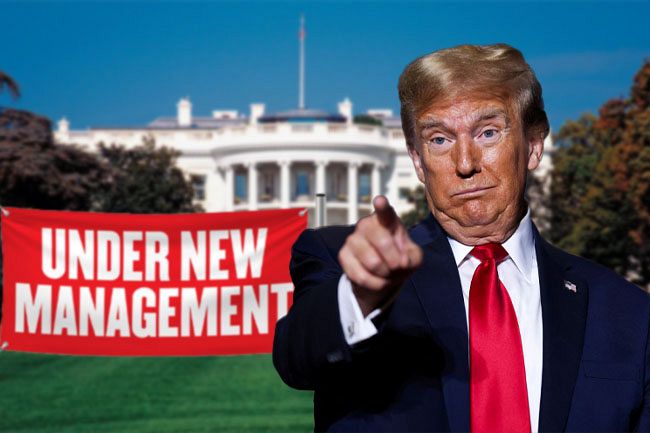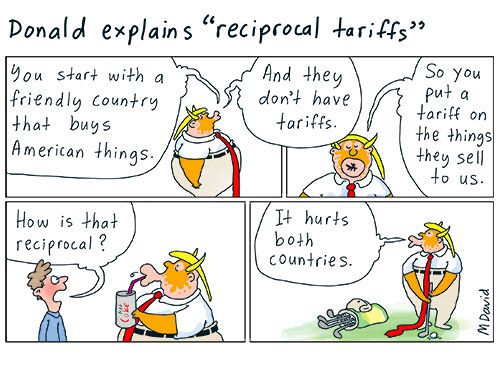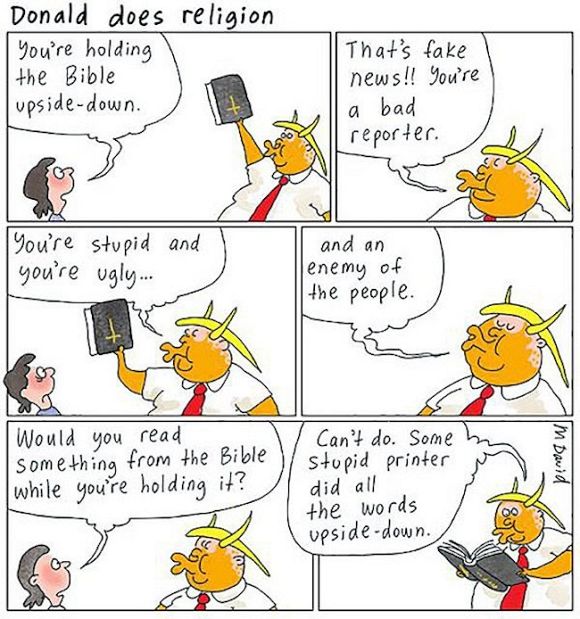Upon his re-election to the White House, Donald Trump's Administration has seen America decline through political, economic and social chaos. Mark Beeson writes.
ONE OF THE MOST influential assumptions that many analysts of international relations make, especially in the United States, is that national leaders everywhere are essentially “rational actors”. This idea always had an element of wishful thinking about it and assumed an improbably benign view of American foreign policy in particular. Now it looks downright bonkers.
Paradoxically enough, however, this may mean that America’s influential, self-referential coterie of foreign policy advisors who have for decades constituted what’s been described as “the Blob” may finally be at one with the contemporary zeitgeist.
At a time when U.S. President Donald Trump is shredding the conventional wisdom about what the most powerful country in the world’s foreign and domestic policies should look like, theory is finally catching up with practice.
I realise that policy wonks having conniptions as their models are blown to smithereens is not the most compelling crisis the world currently faces, but it’s not irrelevant either.
As economist John Keynes famously observed:
‘Practical men, who believe themselves to be quite exempt from any intellectual influences, are usually slaves of some defunct economist.’
One thing we know about Trump is that he’s certainly not under the influence of any economist, living or dead, unless we include the slightly unhinged presence of Peter Navarro, of course. Apart from a recent spell in the slammer, Navarro is best known for his loathing of China and promoting the idea that tariffs are the best way of rebalancing global trade and in his view, “non-negotiable”.
It’s difficult to find anyone outside of Trump’s immediate circle of fawning flunkies, grifters and self-promoters who thinks that the Administration’s foreign and/or economic policies are likely to fix America’s trade deficit, or that it’s actually a worthwhile goal in the first place. After all, the U.S. is still the largest economy in the world and home to an expanding group of plutocrats “leveraging” their access to the President as a means of personal enrichment.
True, the U.S. is distinguished by Brazilian-style levels of economic inequality, but that’s not China’s fault. On the contrary, a taxation system that overwhelmingly favours the very, very rich is one of the distinguishing features of America’s economic and social order and is likely to get even worse thanks to Trump’s proposed tax cuts.
Some of the most immediate victims of this will be the poor, predominantly White working-class voters who put Trump in the White House. To be fair, it’s not their fault they can’t recognise their own interests or realise quite what a completely self-absorbed bonehead the President is, or what that might lead to. After all, many of them had to endure the worst aspects of America’s equally unequal education system.
But, as Vice President JD Vance reminds us, even going to Yale is no guarantee that you’ll emerge with an enlightened viewpoint or a concern for the sorts of people he grew up amongst. On the contrary, it’s fair to say Vance doesn’t have any principles, other than self-promotion, having rapidly pivoted from a “never Trump” guy to the President’s attack dog and sycophant-in-chief.
Even if Trump really was a “very stable genius”, it wouldn’t be a good idea to act on his every whim or fancy. Isaac Newton was a genius, but he spent his spare time dabbling in alchemy. Trump may not have any idea who Newton was, but they share at least one thing in common: they both came to believe they were on a mission from God.
It’s bad enough that the most powerful man in the world is plainly a narcissistic moron with an ego of planetary proportions, but when he’s encouraged in his idiocy and delusions by his inner circle, then as recent events vividly demonstrate, we’re all in trouble.
Perhaps English football offers an unlikely path to, if not salvation, then at least a therapeutic venting of our collective horror and frustration. When their team is doing badly, fans often chant “You don’t know what you’re doing”, or even better, “You’re getting sacked in the morning”. Australian ex-pat Ange Postecoglou is just the latest manager to experience the psychological equivalent of a cold shower.
I’m not sure how America’s growing army of the discontented, not to mention the rest of us, can organise something similar, but a quick chorus might be worth a try. Ridicule is less dangerous than a civil war or a coup and there’s no guarantee you’ll get anything better from them anyway.
At least a global sing-along would be novel and very cathartic, if not epiphanic. Recognising that the lunatics really have taken over the only asylum we’ve got is a first step. Expressing our collective discontent with the management has got to be a sane next step in the right direction.
Mark Beeson is an adjunct professor at the University of Technology Sydney and Griffith University. He was previously Professor of International Politics at the University of Western Australia.
 This work is licensed under a Creative Commons Attribution-NonCommercial-NoDerivs 3.0 Australia License
This work is licensed under a Creative Commons Attribution-NonCommercial-NoDerivs 3.0 Australia License
Support independent journalism Subscribe to IA.

Related Articles
- Beautiful? Or just plain tariff-ic
- Trump’s tariff pause a high-stakes gamble with the world
- What Trump's oil tariff threats mean for Australia
- Donald Trump is the world’s most audacious liar
- China takes the helm in countering Trump's tariff offensive













